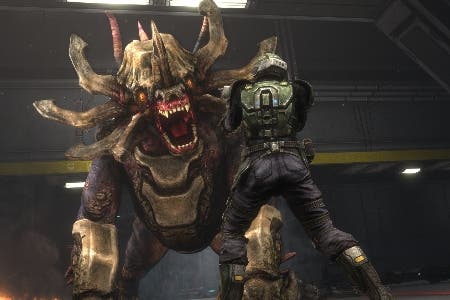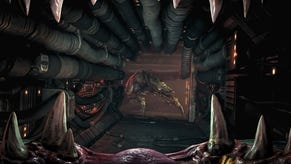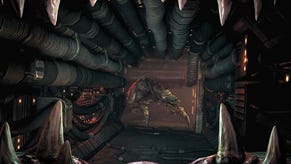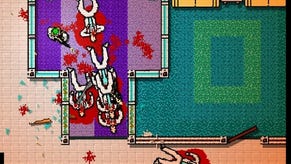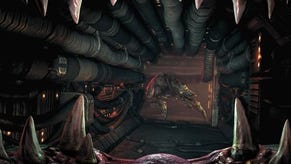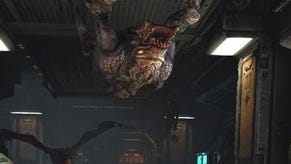Natural Selection 2 review
Combat evolved?
In theory, on paper, in your mind, or in just about any space that isn't the physical, real world, Natural Selection 2 is a gleaming beacon of what can happen when people shrug off the shackles of just one genre and let something new and interesting gestate in their minds for a few years. It blends real-time strategy and first-person shooting in a multiplayer game that takes the best of both worlds and runs with them. It's something very special. But that special something is often ruined by that most unpredictable of things - human beings.
Pitting Marines against the animalistic alien 'Swarm', it's every bit an FPS if you choose to go that route, and one that is drenched in a thick alien mucous of atmosphere. As a marine, you jump at shadows and sneak around corners with your flashlight trembling, terrified that you're about to be pounced on by something with far too many teeth and far too little empathy.
As an alien, you're always the vulnerable predator, desperate to close the gap between the marines' deadly assault rifles and your lethal jaws. Get up close and the fight is in your favour, so as the default dog-like Lurk you scramble up walls, hide in vents, and generally try to find an angle that the marines aren't watching. With both sides playing an utterly different game, it's asymmetry at its best.
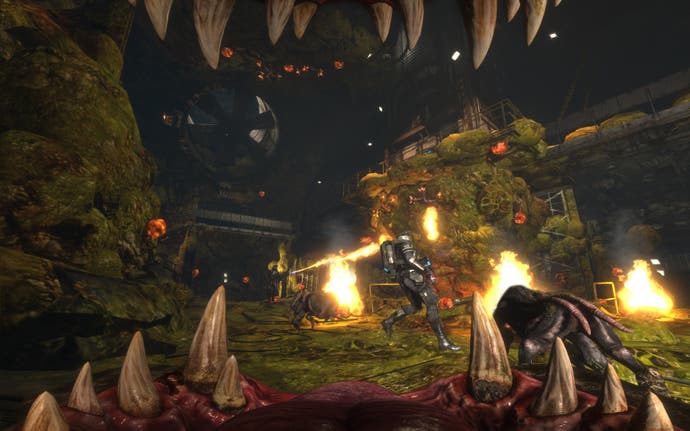
You'll wander through abandoned mining complexes, transit terminals, computer hubs and defence stations, and the best part of it all is that, as the game progresses, they'll become more and more twisted by the influence of your Commanders.
It's here that Natural Selection 2 flies clear of any of its competitors. Where most developers have to embed the visual transition from one side to another and emphasise the difference between the two factions, Natural Selection 2 leaves that up to the commander role.
Each side has a single player in charge of how the team expands and develops, and both the Marine and Swarm commanders have a very different game to play. In charge of the Swarm, you're all about spreading the 'infection', a bulging mass of pulsing green gloop that erupts out of cysts that you place, each one forming a paint-by-numbers path right back to your base Hive. It alters the look of each area as it climbs up the walls, coating everything in this thick mess that squelches under foot. It allows you to build your structures and secure secondary and tertiary bases.
The Marines, on the other hand, are limited by power nodes in each room, a sort of military repurposing that allows you to scatter the immediate area with buildings, providing quick movement of your troops through phase gates, rearming at armouries, and defence through sentry batteries. The stroke of genius is that it means that Marines expand quickly and with a Spartan efficiency; it's all about blitzing the map and securing a forward base before the Swarm's creeping infection spreads too far.
"Seeing your elegant lines of defence and carefully placed buildings go down in flames because your team is on the other side of the map ignoring orders is a special kind of impotence."
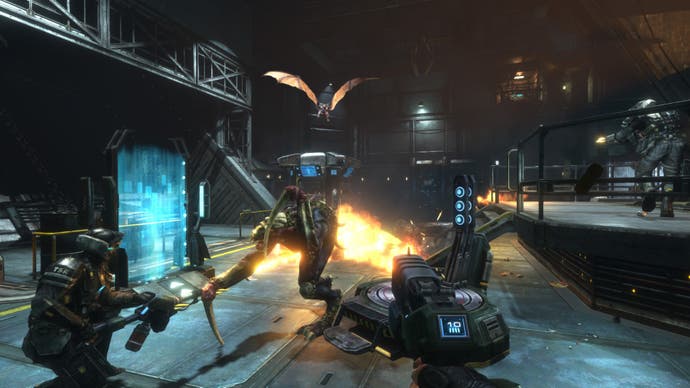
Add to that a steady stream of upgrades directed by the Commander that furnish Marines with new equipment, and the Swarm with evolutionary paths that provide passive upgrades, and you've got the recipe for a game that provides the moment-to-moment thrill of a shooter and the long-term reward and satisfaction of a perfectly executed tactical strategy game. And before I start laying down the caveats, sometimes it is that perfect game. When the stars align and all the players have the right attitude, it works beautifully.
The problem is all those other times: when a new player jumps into the commander seat because they want to just know what's going on behind the scenes. Or when players ignore what the commander is ordering them to do because they'd rather chase kills than secure points. Or the slow, slow loss that occurs when one commander is slightly more proficient than the other, but not proficient enough to drive a victory home swiftly. Frustration wells up in the throat, more often as a commander than as a player. Seeing your elegant lines of defence and carefully placed buildings go down in flames because your team is on the other side of the map ignoring orders is a special kind of impotence.
There is some done to neutralise the negative effects a new player can have on a game with such a large knowledge requirement. For your first few games, you're given the suffix of '(Rookie)' after your name to let everyone know you might not be terribly au fait with the protocols, but there are no actual limitations placed upon you. This wouldn't really be a problem if it weren't so essential to understand how the commander's side works to be a properly effective footsoldier. On top of that, while the Marines Commander can direct orders to his troops, telling them to build here, attack there, move to that location, the Swarm's leader is left herding cats with vague 'threat', 'defend' and 'expanding here' icons.
The intent is clear: the Swarm is more of a primal force, with ferocity instead of organisation, but in practice it just means you're left feeling somewhat impotent as a commander on one side and almost overwhelmed on the other. Players can request orders as Marines, and when you have seven players all spamming that key, the temptation is to just group order them to one location and hope they don't die on the way.
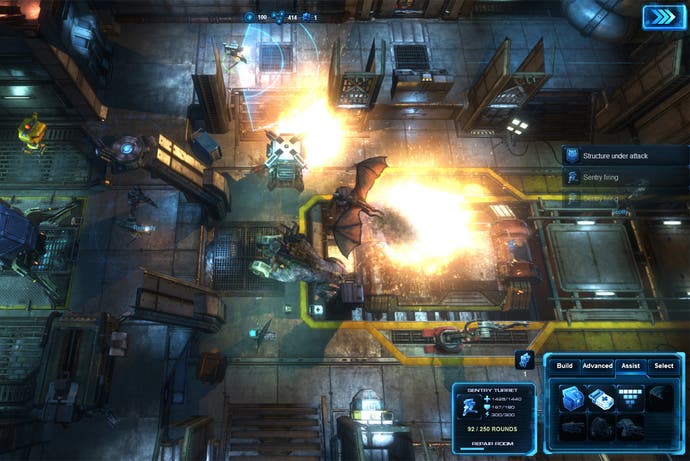
All of this could easily be down to those first few weeks after release when players are figuring things out, with the problems fading away as the community becomes more familiar with the game's systems. Inexperienced commanders and wilfully ignorant players seem to become less frequent as the days go on, which is encouraging.
More problematic are the balance issues that are starting to rear their heads. In most of the games I've played, the Swarm's mega-unit, the Onos, has dominated far more than the Marines' equivalent, the Exo Suit, dual mini-guns or not. The giant rhino of an alien monster can tear through even an organised group of Marines, leaving them with no option other than to run away as fast as they can, screaming. Couple the Onos with a Gorge - a fat little Swarm builder unit that can heal friendlies - and they're extremely hard to put down.
It turns each match into a rush for the Marines, trying to shut down the Swarm side before they get a production line in place to churn out Onos, but more often than not the slow spread of the infection defeats them. Developer Unknown Worlds has been very attentive with the game throughout the beta, so hopefully such issues are going to be ironed out with vigilant patching.
Natural Selection 2 is a fresh and wonderfully unique multiplayer game which simultaneously struggles with that very mantle. Because it's unfamiliar, players aren't able to just slip into it, and there is a significant knowledge gap between a new player and an old. You can't just transfer your Call of Duty skills over here, or even your impressive actions-per-minute in StarCraft 2. Natural Selection 2 lives somewhere between the two, where communication becomes essential - because these aren't mindless soldiers you're dealing with, but human beings.
